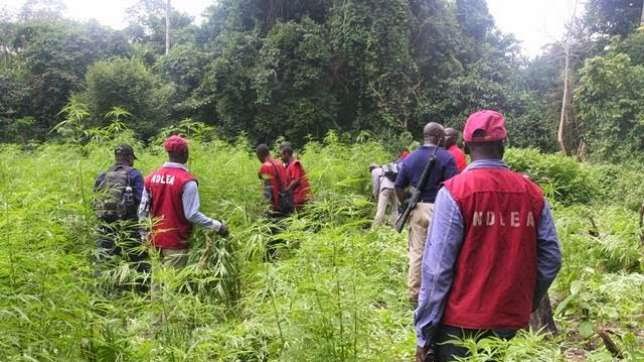NANS Backs NDLEA Over Drug Test Proposal For Students
The National Association of Nigerian Students (NANS) has applauded the proposal by the National Drug Law Enforcement Agency (NDLEA) for students to undergo drug integrity test before admission into the university.
A statement issued on Wednesday by the Head of Public Affairs, NDLEA, Mr Jonah Achema, quoted the NANS President, Mr Sunday Asefon as stating this during a solidarity visit to the NDLEA Chairman, Brig.-Gen. Buba Marwa (retd.) in Abuja.
Marwa had, on Monday, said that the agency would seek government approval to conduct drug tests on tertiary institutions’ new students, security agencies’ fresh recruits and appointees.
According to Asefon, “We support the drug test policy. Drug has done more harm than good to Nigerian students. We do not want them to continue to die of drugs,” he said.
The NANS president, who gave instances of students undermining dangers under the influence of drugs, noted that the initiative was not only preventive, but would also encourage others to stop the habit, knowing that the authorities would detect it.
“We are here to congratulate you and declare our support for your nascent administration.
“From your antecedents, we can now go home to sleep with our two eyes closed, with an assurance that Nigeria is in safe hands as far as drug control is concerned.
“Oftentimes, it is when most students leave home and start schooling that they start engaging in illicit drug practices,” he said.
In his remarks, Marwa commended NANS for the congratulatory visit and show of solidarity.
“I am particularly delighted by your promise to cleanse our campuses of drugs. Your buying into our drug testing among students is equally encouraging,” he said.
The NDLEA boss further called on the students to strengthen “Drug-Free Clubs” in campuses, saying that there had been some objections to the drug testing initiative.
“But, we cannot watch our students taking drugs and jumping into the well, thinking it is a swimming pool.
“The testing of students is to determine their status early enough and decide the form of intervention to deploy. It is, by no means, punitive,” he said.





